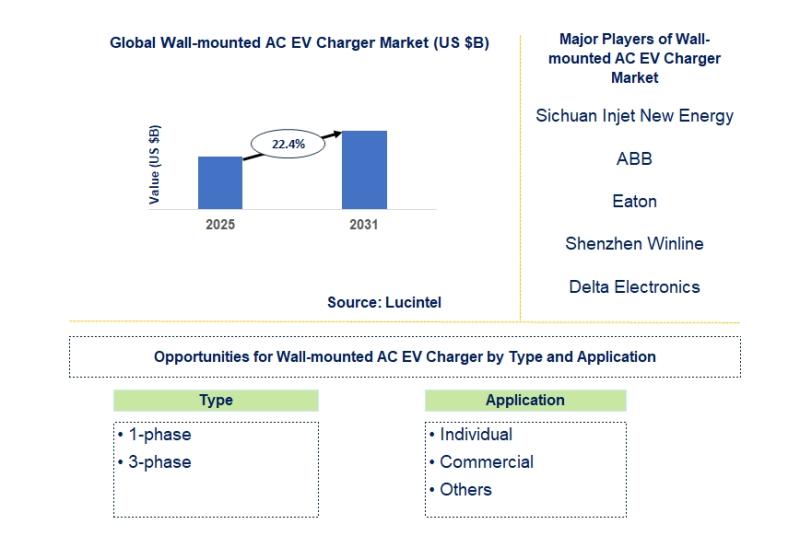An EV thermal system is a set of components designed to manage the temperature within an electric vehicle (EV). It includes the cooling and heating of critical components like the battery, motor, and power electronics to maintain optimal performance and ensure safety. Efficient thermal management helps improve the vehicle’s energy efficiency, extend battery life, and enhance overall driving performance.
The global EV thermal system market is driven by the increasing adoption of electric vehicles, the need for efficient battery performance, and the focus on energy efficiency and range enhancement. However, challenges such as the high cost of advanced thermal solutions, the complexity of system integration, and the diversity of vehicle designs complicate the market’s growth. Opportunities lie in the demand for lightweight, high-efficiency systems, the integration of renewable energy sources, and innovations driven by the rise of autonomous and connected vehicles. These factors create a dynamic landscape for the development of advanced thermal management technologies.
For Sample Report:
https://www.dhirtekbusinessresearch.com/market-report/EV-Thermal-System-Market/request-for-sample-report
Market Drivers
The global EV thermal system market is primarily driven by the increasing adoption of electric vehicles (EVs) as a sustainable alternative to traditional combustion engine vehicles. As governments worldwide implement stricter emissions regulations and offer incentives for EV production and purchase, the demand for EVs has surged. This rise in EV adoption is creating a greater need for advanced thermal management solutions that ensure battery efficiency, safety, and performance. A well-designed thermal system optimizes the battery’s temperature, preventing overheating or excessive cooling, which is essential for maintaining the vehicle’s range, lifespan, and safety.
Battery efficiency is another significant driver of the EV thermal system market. Batteries in electric vehicles generate heat during operation, which can degrade their performance and shorten their lifespan if not properly managed. To enhance battery longevity and maintain consistent performance, automakers rely on efficient thermal systems. Thermal management not only helps to preserve the battery’s health but also minimizes the risk of thermal runaway, a potential hazard in electric vehicles, thus encouraging further investment in innovative thermal technologies.
The increasing focus on energy efficiency and range anxiety is also contributing to market growth. EV consumers are particularly concerned about driving range and the time it takes to recharge the vehicle. Efficient thermal management ensures that the battery operates in an optimal temperature range, thereby enhancing energy efficiency and extending the vehicle’s range on a single charge. This, in turn, makes electric vehicles more appealing to a broader audience and stimulates demand for advanced thermal solutions.
Technological advancements in thermal management solutions have also spurred market growth. Innovations such as liquid cooling systems, phase-change materials, and heat pumps are improving the efficiency and cost-effectiveness of EV thermal systems. These technological developments allow automakers to enhance the performance of EVs while addressing challenges such as high battery temperatures in extreme weather conditions. With the ongoing advancements, thermal systems are becoming more compact, lightweight, and energy-efficient, further driving their integration into electric vehicle designs.
Market Challenges
One of the primary challenges facing the global EV thermal system market is the complexity and cost of developing advanced thermal management solutions. As electric vehicle designs become more sophisticated, the need for thermal systems that can handle higher energy densities, extreme temperatures, and varying operational conditions becomes more critical. This drives up the cost of materials, manufacturing, and system integration, making it difficult for manufacturers to balance performance and affordability. Furthermore, the diversity in battery chemistries, vehicle designs, and climate conditions adds to the challenge of creating universal, effective thermal solutions. Achieving a seamless balance between efficient thermal management and minimizing energy consumption is another hurdle, as excessive energy use for cooling or heating can reduce overall vehicle efficiency. The rapid pace of technological advancements in this field also means that companies must continually invest in research and development to keep up with the competition and meet evolving consumer demands, all while addressing concerns such as sustainability and environmental impact.
Market Opportunities
A key opportunity in the global EV thermal system market lies in the growing demand for lightweight, high-efficiency thermal management solutions. As electric vehicles continue to evolve, manufacturers are looking for ways to reduce the overall weight of the vehicle to improve range and energy efficiency. This opens up opportunities for the development of advanced materials and innovative thermal systems that are both lightweight and highly effective in managing heat. The integration of renewable energy sources, such as solar panels, into electric vehicles also presents opportunities for thermal system innovation. Solar energy can be used to power cooling or heating systems, potentially reducing energy consumption and improving overall vehicle efficiency. Another opportunity arises from the increasing focus on autonomous and connected electric vehicles, which require enhanced thermal systems to manage the increased heat generated by complex computing and sensor systems. Companies that can design thermal management solutions tailored to these next-generation vehicles stand to gain a competitive edge. Lastly, as the demand for EVs grows in regions with extreme climates, there is a significant opportunity for thermal systems that can perform efficiently under varied environmental conditions, including both very hot and cold climates.
Regional Analysis
In North America, the EV thermal system market is driven by the rapid adoption of electric vehicles, especially in the United States, where government policies and incentives are pushing for greater EV production and sales. The region benefits from a well-established automotive industry, with major automakers investing heavily in electric vehicle development. The demand for efficient thermal systems in North America is particularly influenced by the need for high-performance EVs that can operate effectively in varying climates, from hot summers to cold winters. Advances in technology and a focus on improving battery performance further drive the market in this region.
Europe is a significant player in the global EV thermal system market, with countries like Germany, France, and the Netherlands leading the charge in electric vehicle adoption. Stringent environmental regulations, government incentives, and strong consumer demand for sustainable transportation are key factors driving the market. Europe’s automotive sector is rapidly transitioning toward electric mobility, and the emphasis on high efficiency and safety in EVs has made thermal management a critical focus. Additionally, the region’s emphasis on renewable energy and carbon reduction goals has spurred the development of innovative thermal systems designed to maximize battery efficiency and overall vehicle performance.
In the Asia Pacific region, the EV thermal system market is growing rapidly, primarily due to the dominance of China, Japan, and South Korea in the electric vehicle industry. China, as the world’s largest EV market, plays a pivotal role in the regional market’s growth, with significant government subsidies, infrastructure development, and a rapidly expanding EV manufacturing base. Japan and South Korea are home to major automakers focused on developing advanced thermal systems for electric vehicles. The demand in this region is also driven by the need to address climate extremes, particularly in densely populated cities where EV adoption is accelerating. The expansion of EV infrastructure and technological advancements in battery cooling and heating are key factors in the growth of the market in Asia Pacific.
Latin America’s EV thermal system market is still emerging, but it is gaining traction due to increasing interest in electric vehicles, particularly in countries like Brazil and Mexico. Government incentives and growing environmental awareness are contributing to the gradual shift toward electric mobility in the region. However, infrastructure challenges and limited adoption rates compared to other regions are factors that may slow the market’s growth. Despite these challenges, the potential for growth is significant as Latin American countries focus on reducing carbon emissions and improving energy efficiency, creating opportunities for EV thermal systems to play an important role in the EV sector’s development.
In the Middle East and Africa, the EV thermal system market is at a nascent stage but is poised for growth due to rising interest in sustainable energy solutions and increasing investments in electric vehicles. The region’s rich natural resources, particularly in oil-rich countries, have historically favored conventional vehicles, but there is now growing momentum toward diversifying the automotive sector with electric vehicles. The climate, characterized by extreme temperatures, presents a unique challenge for thermal systems, creating opportunities for manufacturers to develop specialized solutions tailored to the region’s hot environments. As the adoption of EVs rises and governments begin implementing stricter emissions regulations, the demand for efficient thermal management systems is expected to increase in this region.
Market Segmentation
Based on Product Type:
Heating Ventilation and Air Conditioning
Power Train Cooling
Fluid Transport
Others
Based on Application:
Battery Electric Vehicle
Hybrid Electric Vehicle
Plug-in Hybrid Electric Vehicle
Fuel Cell Electric Vehicle
Regional Breakdown:
North America: United States and Canada
Europe: Germany, United Kingdom, France, Italy, Spain, Russia, and the Rest of Europe
Asia Pacific: China, India, Japan, South Korea, Australia, ASEAN Countries, and the Rest of Asia Pacific
Middle East & Africa: GCC, South Africa, and the Rest of the Middle East & Africa
Latin America: Brazil, Mexico, Argentina, and the Rest of Latin America
Key Players:
BorgWarner
Dana Limited
Hanon Systems
Valeo SA
Denso Corporation
Bosch
Mahle GmbH
VOSS Automotive
Modine Manufacturing
Gentherm
CapTherm Systems
LG Chem
Visteon Corporation
“Contact Us
Dhirtek Business Research and Consulting Private Limited
Contact No: +91 7580990088
Email Id: sales@dhirtekbusinessresearch.com”
“About Us
Dhirtek Business Research & Consulting Pvt Ltd is a global market research and consulting services provider headquartered in India. We offer our customers syndicated research reports, customized research reports, and consulting services. Our objective is to enable our clientele to achieve transformational progress and help them to make better strategic business decisions and enhance their global presence.
We serve numerous companies worldwide, mobilizing our seasoned workforce to help companies shape their development through proper channeling and execution. We offer our services to large enterprises, start-ups, non-profit organizations, universities, and government agencies. The renowned institutions of various countries and Fortune 500 businesses use our market research services to understand the business environment at the global, regional, and country levels. Our market research reports offer thousands of statistical information and analysis of various industries at a granular level.”
This release was published on openPR.


